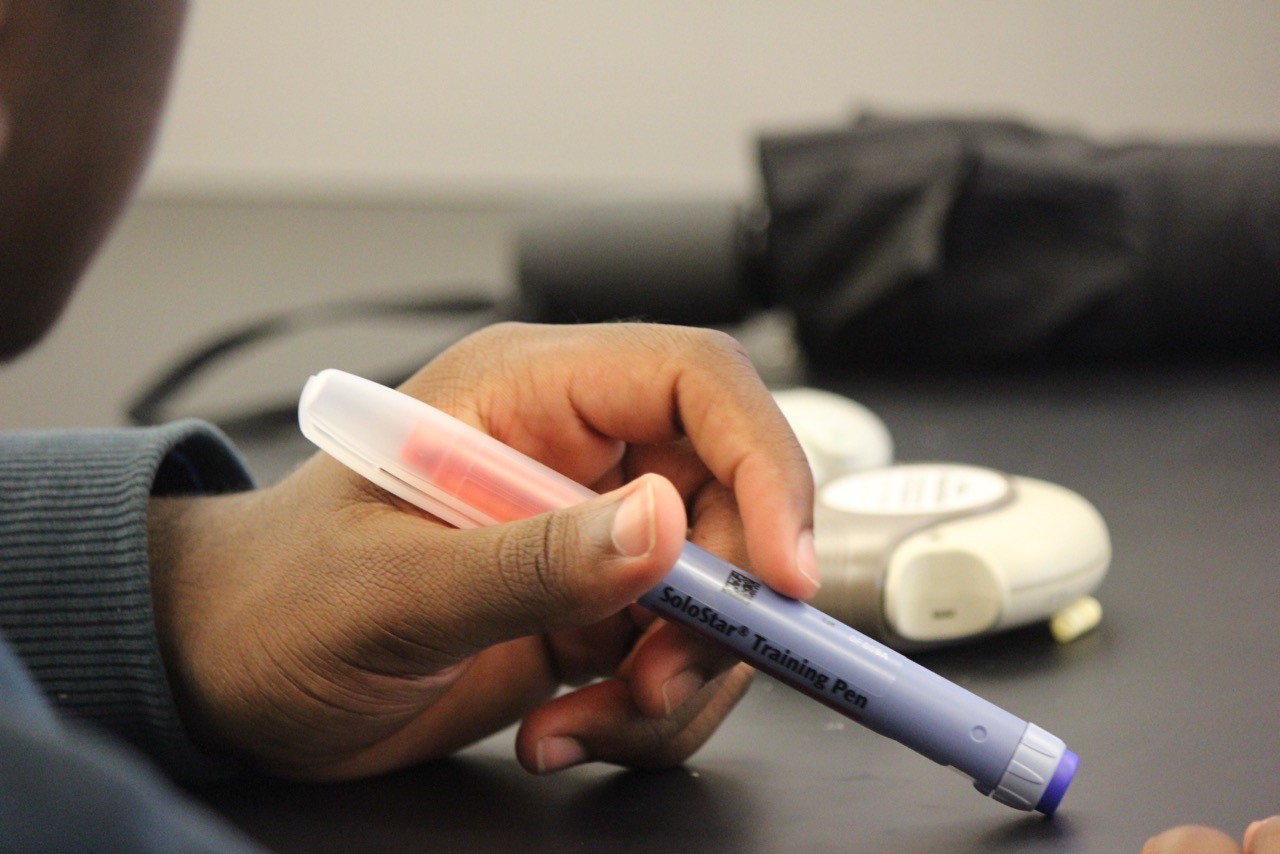It’s true that there are not as many pharmacy students on the Storrs campus during the summer months as there are during the academic year, but that doesn’t mean everything comes to a complete halt.
Among many on-campus activities are programs designed to foster interest in pharmacy as a key health care profession. Some of these sessions take place in one day or less and are tailored to reach
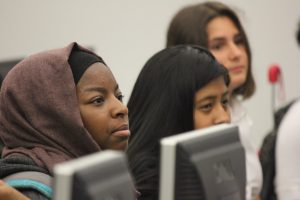
traditionally under-represented students from Connecticut. Others are residential programs that bring in young people from across the nation, and internationally, to explore UConn and the wide variety of academic majors that are offered here.
Taking part in these programs are School of Pharmacy faculty and students who share their experiences and offer advice and guidance to the next generation of health care providers.
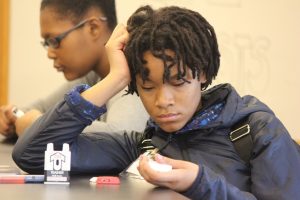
One such program is the Aetna Health Care Professions Partnership Initiative Academy Program Summer Tour – the Summer Tour for short! This year, during a four-hour visit on a rainy Friday morning in July, youngsters from the greater-Hartford area who are about to enter their freshman and sophomore years in high school were treated to five different interactive sessions in the School of Pharmacy and the School of Nursing. This was followed by a pizza lunch and a chance to ask questions prior to boarding buses for home.
Before leaving, a number of these students volunteered their opinions, with comments generally ranging from ‘fun’ to ‘awesome‘ to ‘I loved it!‘
A more intensive academic experience is offered through UConn’s Pre-College Summer Academy. This is a residential program for rising high school juniors and seniors. Students have a chance to participate in
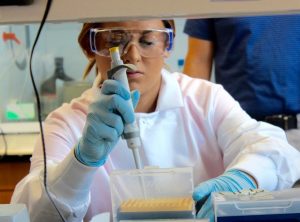
up to four challenging and intensive one-week sessions studying topics from the STEM fields as well as fine arts, foreign languages, and other subjects across the social sciences and the humanities. While most students hail from the Northeast, participants have come from across the U.S. and from countries as far flung as France, Romania, and China.
This year, M. Kyle Hadden, Associate Professor of Medicinal Chemistry, taught a week-long course on Medicinal Chemistry and Drug Discovery. Workshops on How Diseases Spread, Pharmacy Compounding Practice, and Pharmacists as Medication Experts were taught by Andrea Hubbard, Associate Professor of Pharmacology and Toxicology; Robin Bogner, Professor of Pharmaceutics, and Jill Fitzgerald, Director of Pharmacy Professional Development and Associate Clinical Professor of Pharmacy Practice.
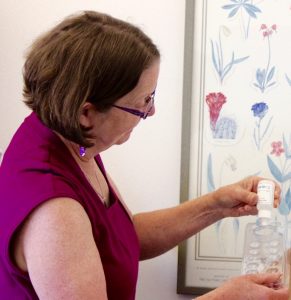
Hubbard says she taught the workshop on how diseases spread, including HIV and Hepatitis B, because, “I love to teach and summer programs are just one more opportunity to expose students to some of the possibilities that lie ahead of them.”
Her workshop looked at how infectious diseases spread and explored various interventions including vaccinations, drugs, and behavioral changes. “We pack a lot of information into a short timeframe,” she said.
Hubbard is a firm believer that high school and the first two years of college are the perfect time for students to explore a wide variety of academic and career possibilities.
“In my case, I was in college the first time I looked at bacteria under a microscope,” she says, “and that initial course in microbiology eventually led me to discover the field of immunology which became my passion. That’s why I encourage young people to take plenty of time to investigate and explore their options before making any final decisions.”
Hubbard adds that the value of programs such as the Pre-College Summer Academy is that young people may learn as much about what they don’t want to do as what they do want to do.
And that, she says, is truly enlightening.
